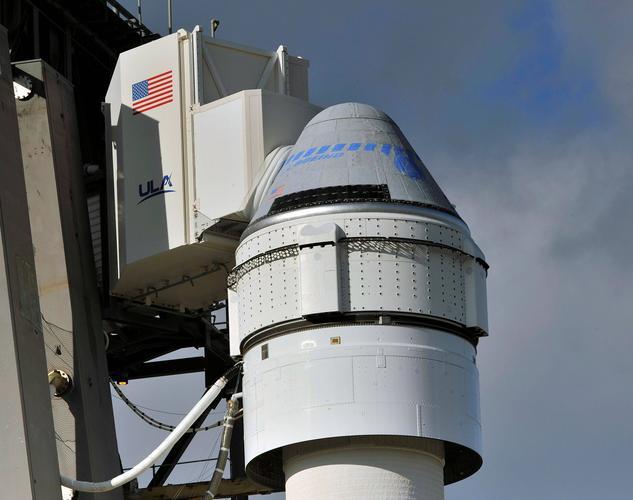
On June 1, 2024, the first manned flight of Boeing's Starliner spacecraft was again delayed. The launch mission was scheduled for 12:25 a.m. Eastern Time on June 1 from Cape Canaveral Space Force Station in Florida, United States.
Starliner is a manned spacecraft developed by Boeing for NASA's Commercial Crew Development program, primarily to transport passengers to the International Space Station. However, the development of the spacecraft has repeatedly hit a wall, and it has not been able to complete manned test flights. In December 2019, Starliner's first unmanned orbital flight test failed, and the spacecraft failed to reach its intended orbit, forcing it to cancel its mission to the International Space Station. In May 2022, the Starliner successfully docked with the International Space Station, paving the way for manned test flights. Boeing and NASA were scheduled to carry out the first manned test flight of the Starliner spacecraft on May 6 this year, but the launch mission was canceled at the last minute due to an abnormal reading of the Centaurus upper stage oxygen release valve. Since then, technical problems such as a helium leak have caused the mission to be delayed for weeks.
Boeing has been Mired in a crisis of confidence over the quality and technology of its planes for some time, and the veteran aircraft maker is under pressure from US regulators and airlines. With the commercial aircraft business in disarray, Boeing desperately needs a breakthrough in space. However, the Boeing Starliner has been repeatedly delayed. By some estimates, the Starliner program is already years behind schedule, with cost overruns of about $1.5 billion. And its competitor SpaceX's manned "Dragon" spacecraft has already been put into service in 2020, becoming an important partner of NASA.
The test flight comes at a critical time for Boeing, which is Mired in various scandals and desperately needs success in space to improve its image. Boeing's chief financial officer said at a conference in May that the company's defense and space division expected to post a loss in the second quarter due to "cost pressures" on fixed-price contracts.
Now, another delay in Boeing's manned missions may have some negative consequences for the company
The first is the damage to Boeing's reputation: Boeing's Starliner spacecraft has been delayed by development delays and test flight setbacks, while its rival SpaceX's Dragon spacecraft has completed multiple missions to the International Space Station. That could hurt Boeing's reputation in commercial space and put it at an even greater disadvantage in its competition with SpaceX.
The second is the economic loss. The project is already years behind schedule, with cost overruns of about $1.5 billion. Another delay in the crewed mission could further increase Boeing's financial losses. In addition, it will affect Boeing's market share. While Boeing is experiencing "quality gate" in the aerospace field, it is also under pressure in the aerospace field. Another delay in the Starliner manned mission could hurt Boeing's market share in the commercial space sector and could put Boeing under more competitive pressure in future programs.
At present, Boeing has not announced a new launch date, and the next launch window is tentatively scheduled for June 5 or 6 Eastern time. The future of Starliner remains uncertain, and we will continue to monitor its progress.

Amidst the global wave of technological transformation, artificial intelligence (AI) has become a key focus of competition among major tech giants.
Amidst the global wave of technological transformation, art…
In January 2026, the remarks by US Treasury Secretary Besse…
Less than three weeks into 2026, transatlantic trade relati…
On January 17, 2026, the Trump administration, under the pr…
When Musk set the goal of achieving a launch frequency of m…
A week after the largest nationwide protests in years, the …